Chaos in Harare as Police and Demonstrators Face Off at Electoral Reform Protest
Zimbabwe’s whispers of discontent are growing louder. Zinyange Auntony takes us inside Friday's electoral reform protest in Harare.
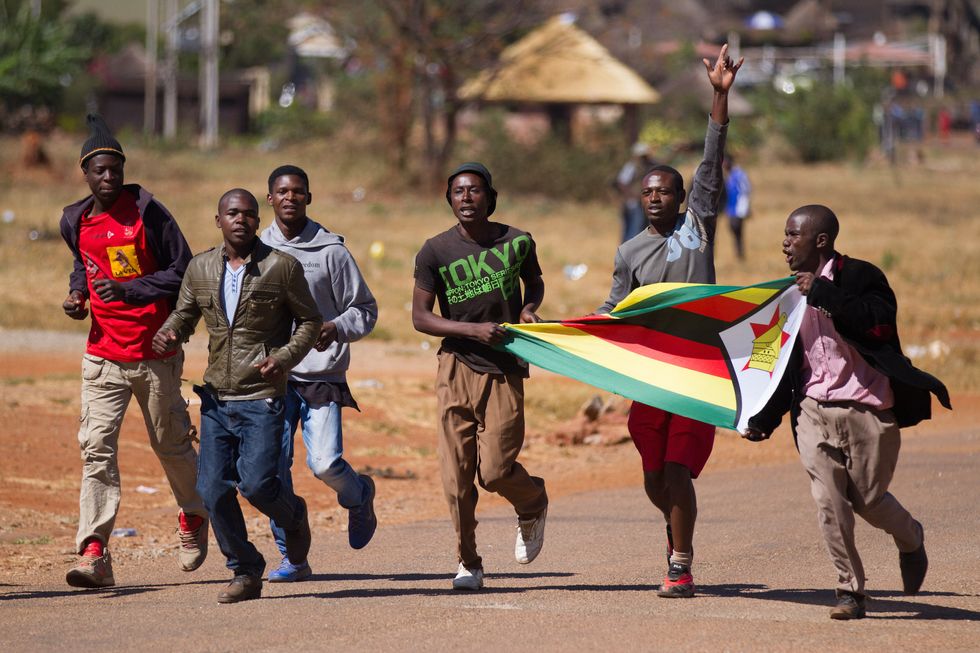
Anti-riot police descended on opposition demonstrators Friday in Harare as they attempted to stage a march under the name, the National Electoral Reform Agenda (NERA).
The crackdown came despite the group having been granted the right to march to demand electoral reforms before the much anticipated 2018 presidential election.
“This is the end game. Victory is certain for the people. This is the last mile. There is no doubt that the people are speaking—it’s no longer a whisper it’s become vocalized discontent,” MDC vice president Nelson Chamisa told journalists after addressing the crowd who had stayed at the square until sunset.
The planned march failed to take off after police tried to disperse hundreds of demonstrators from Freedom Square next to Exhibition Park where the Harare Agricultural Show is going on until 27 August. The show was officially opened by Zimbabwean President Robert Mugabe and Sierra Leone Vice President Victor Bockarie Foh.
Working on a directive from the Home Affairs minister Ignatius Chombo, police fired teargas onto the protesters which climaxed into running battles entangling opposition demonstrators, police and ZANU PF supporters.The leaders of the NERA collective, including MDC Leader Morgan Tsvangirai, ZimPF Joyce Mujuru among others, briefly appeared at Freedom Square before being whisked away as tear smoke rained on the tense gathering.
As the battles got hotter in the streets of Harare, protesters burnt and looted vending stalls operated by suspected ZANU PF beneficiaries at Copacabana flee markets in the CBD.
“Them being fed by ZANU PF bigwigs does not mean that we are all belly full, I have kids to take care of, I don’t live on beer like they do, I am fed up, MUGABE MUST GO,” a stone-wielding protester told Okayafrica.
At the height of the violence a military helicopter was spotted hovering above the crowds who had at that point closed all streets leading to the CBD with fire barricades. Eventually police started firing teargas indiscriminately around the CBD in a bid to get people out of town.
The commuter taxis were stoned for the simple reason that they were ferrying people during a demo which enables normalisation of things and were said to be profiteering in the process at the expense of others who had sacrificed to leave whatever means of earning.
“I am not employed. I am like a dead man walking. What choice do I have? If hunger does not kill me now then police might as well slaughter me," said an elderly protester, Mr. Chitukutuku. "I am no longer afraid of police. I will demonstrate until things get right,” he continued.
The disgruntled masses of Zimbabwe are demanding not only electoral reforms but an overhaul of the system that has governed the country for 36 years through the use of grotesque and unmitigated police brutality on anyone who dares challenge power.
The state-owned newspaper, The Chronicle, reported that during a send-off meeting ceremony for students going to study in China under the presidential scholarship programme at State House, Mugabe slammed the anti-government protests as an ill imitate of the ‘Arab Spring’ sponsored by opposition parties and their handlers in effort to unseat a constitutionally elected government.
At the setting of the sun as the few defiant crowds dispersed to their respective places Okayafrica managed to speak to Bernard Sibanda, an MDC supporter who came all the way from Gweru, Midlands to voice his concerns.
“Do you think it’s fair that I have worked for the past seven months and have not received my pay while the bosses are competing to buy the most expensive cars and spending on luxurious hotels? Death is knocking on my door, slowly but surely I am dying I don’t have the means to survive other than going to work. Nothing is left for me. If it is war they want let them bring it I will die on the front line,” he said.
Adjusting the belts on his backpack he shouted “Enough is Enough” and started singing in vernacular Shona “Bob chibva handikendenge chero wakabata gidi,” meaning "Mugabe you must go, I don’t care if you holding a gun," as he trotted to catch up with his comrades.
The NERA leaders have threatened with another demo next Friday as there is already another on the 31st August called for by the defiant pressure group #Tajamuka/Sesjikile.

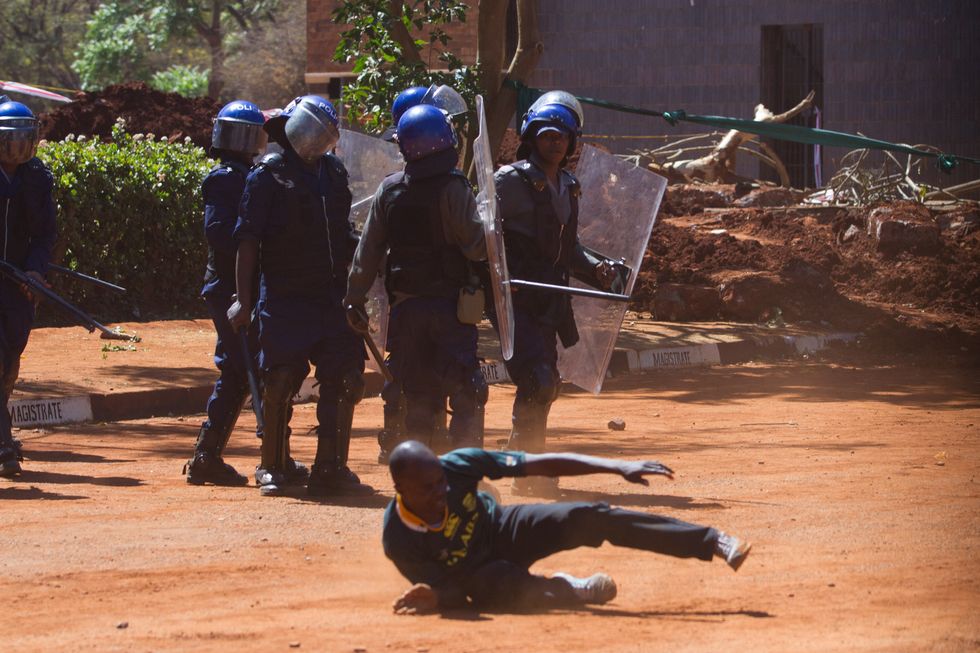
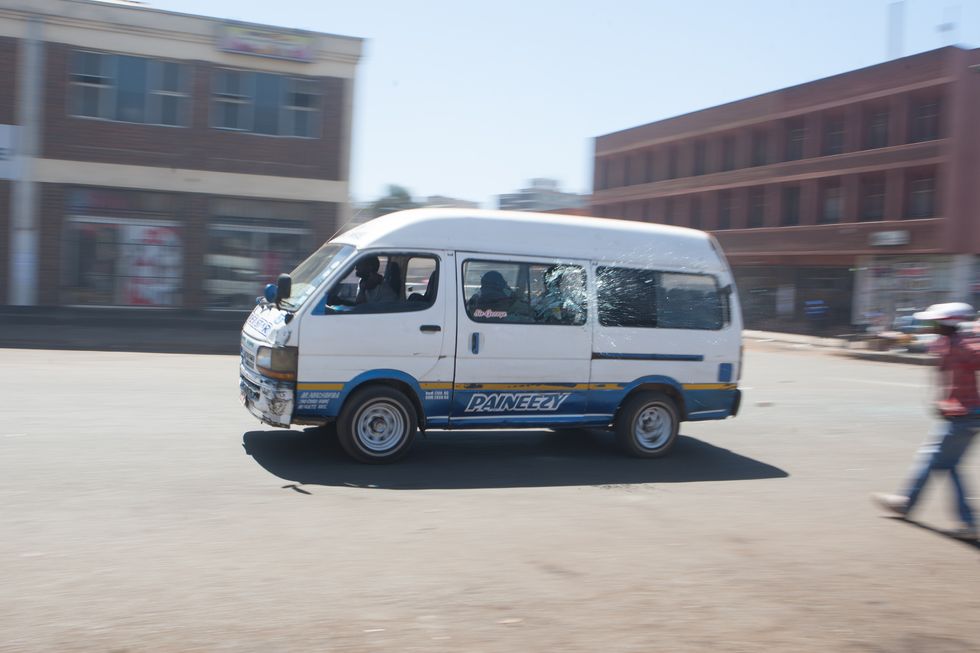
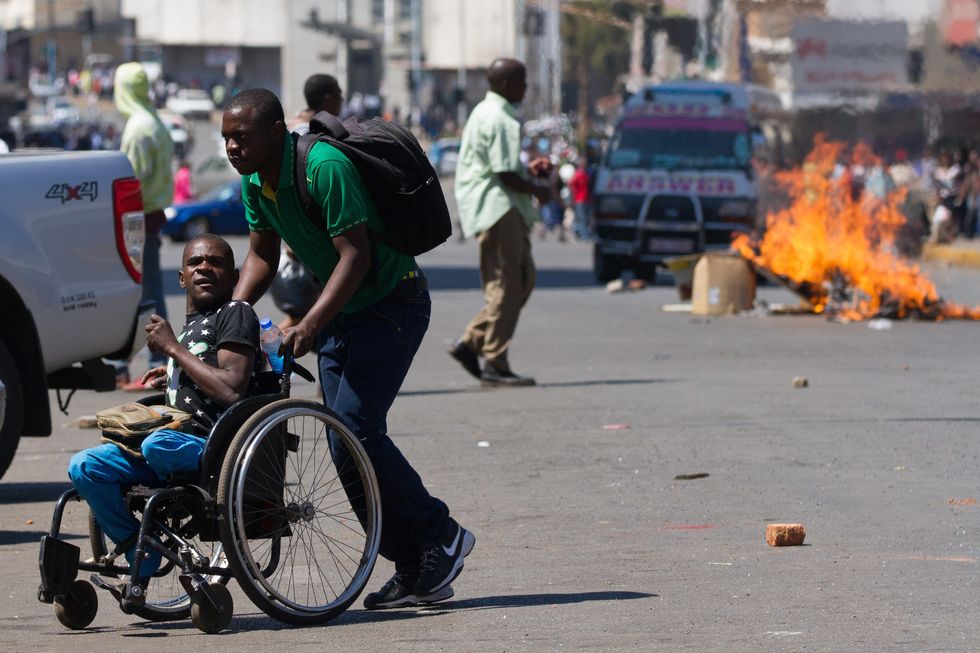
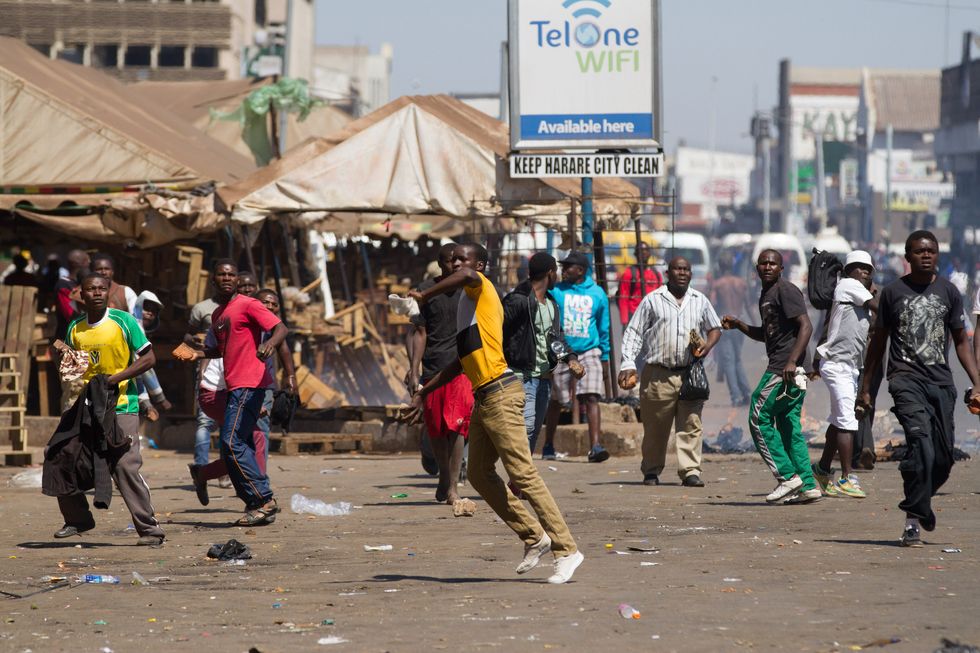
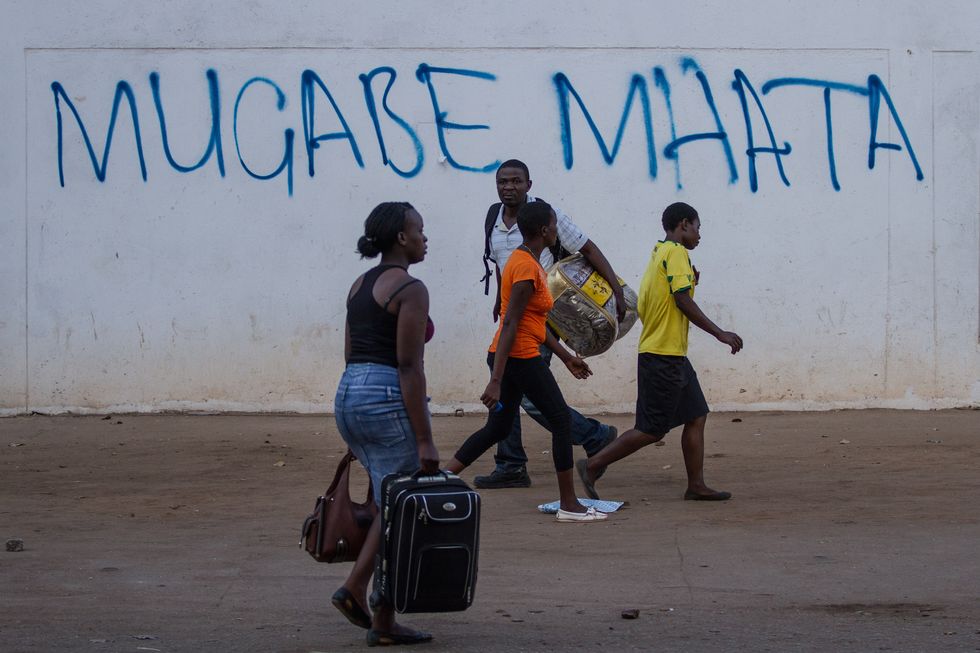
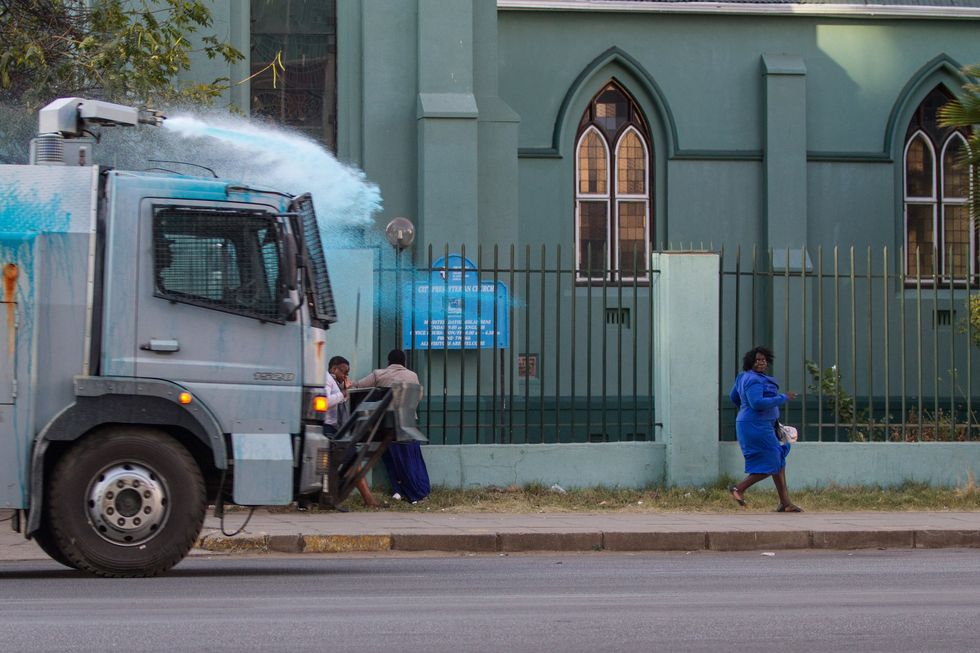
Zinyange Auntony is a freelance Zimbabwean photojournalist with growing interest in less reported stories. He’s currently studying Peace and Conflict Resolution studies. You can keep up with him on Instagram at @zinyange.

